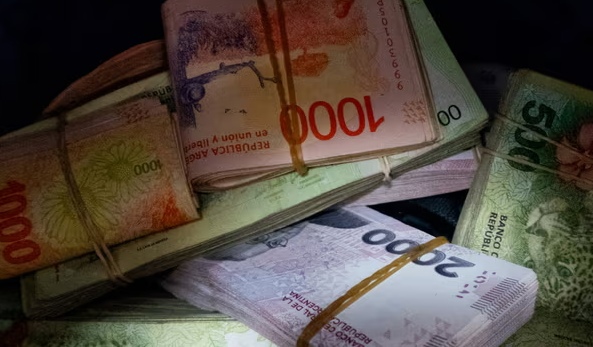Argentine investors and markets were cautious on the first details of President Javier Milei’s plans to revitalise Argentina’s declining economy, Reuters reports.
The presidential administration came to power promising sweeping economic changes to combat years of economic stagnation, negative reserves and inflation above 100 per cent.
Investors say the new government’s changes have met expectations. On Tuesday, Economy Minister Luis Caputo unveiled new measures, including lowering the official peso exchange rate by more than 50 per cent, cutting energy subsidies and cancelling public works tenders. Argentina expert at KNG Securities said:
The news is positive. It is a massive fiscal effort, with 3 ppts of GDP of spending cuts and 2.2% of additional revenues.
Argentine debt and equity trading was light in London hours, but sovereign dollar bonds rose almost 1 cent and US-listed shares in Argentine state oil company YPF rose 1.3 per cent in early pre-market trading. “Non-deliverable” currency forwards rose sharply, showing bets that their value will continue to fall.
Six-month forwards were trading at 1.022 per dollar ARS6MNDF and one-year forwards were trading at 1.687 ARS1YNDF.
The peso also lost ground on cryptocurrency exchanges, an indirect sign of a black market. According to cryptocurrency exchange Binance, the price of one teeter, a cryptocurrency pegged to the US dollar, was at 1,167.30 Argentine pesos as of 1019 GMT, the highest since late October.
According to Jimena Blanco, chief analyst at Verisk Maplecroft, the government is trying to mitigate the effects of an otherwise guaranteed economic collapse. She noted:
He promised a very tough pill to swallow and he’s delivering that pill. The question is how long will popular patience last in terms of waiting for the economic situation to change.
Argentina has had its hand on the peso exchange rate since 2019, creating a large gap between the official rate, which stood at 366 per dollar before Caputo’s announcement to move to 800, with plans for a 2% monthly devaluation. Earlier this week, the parallel rates were just above 1,000 per dollar.
Caputo also announced government spending cuts of 2.9 per cent of GDP, with almost 1 percentage point cuts in energy and transport subsidies, and outlined some new taxes.
